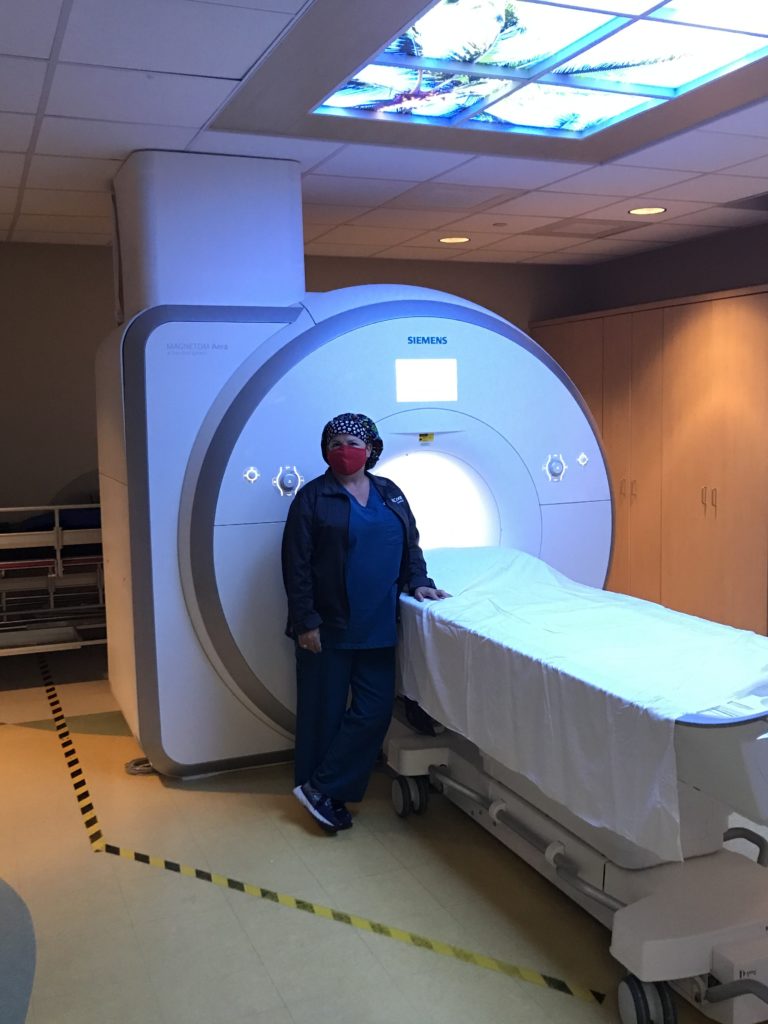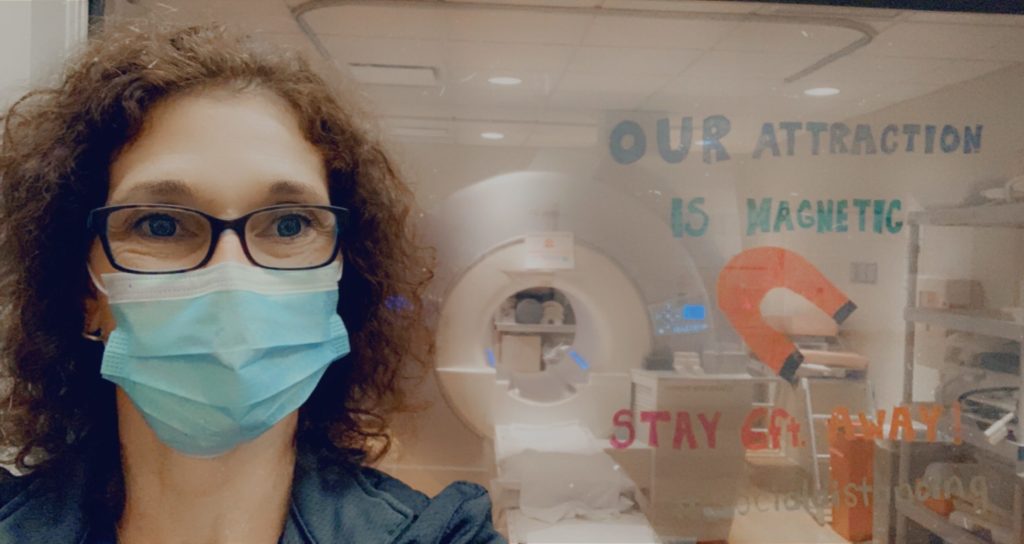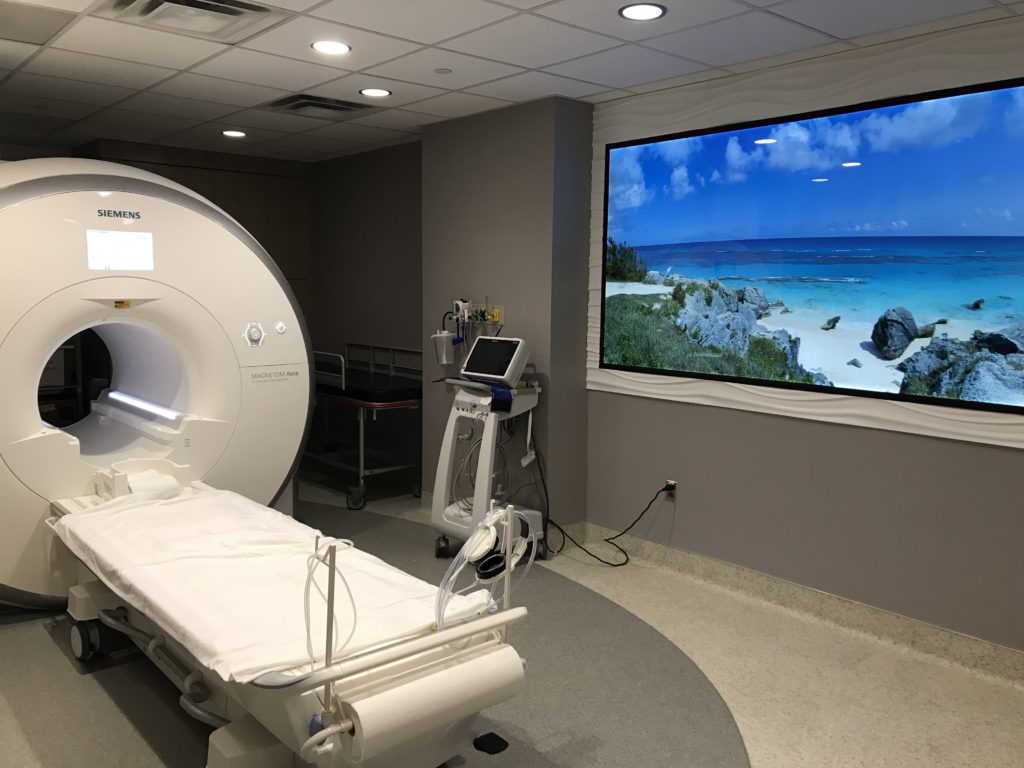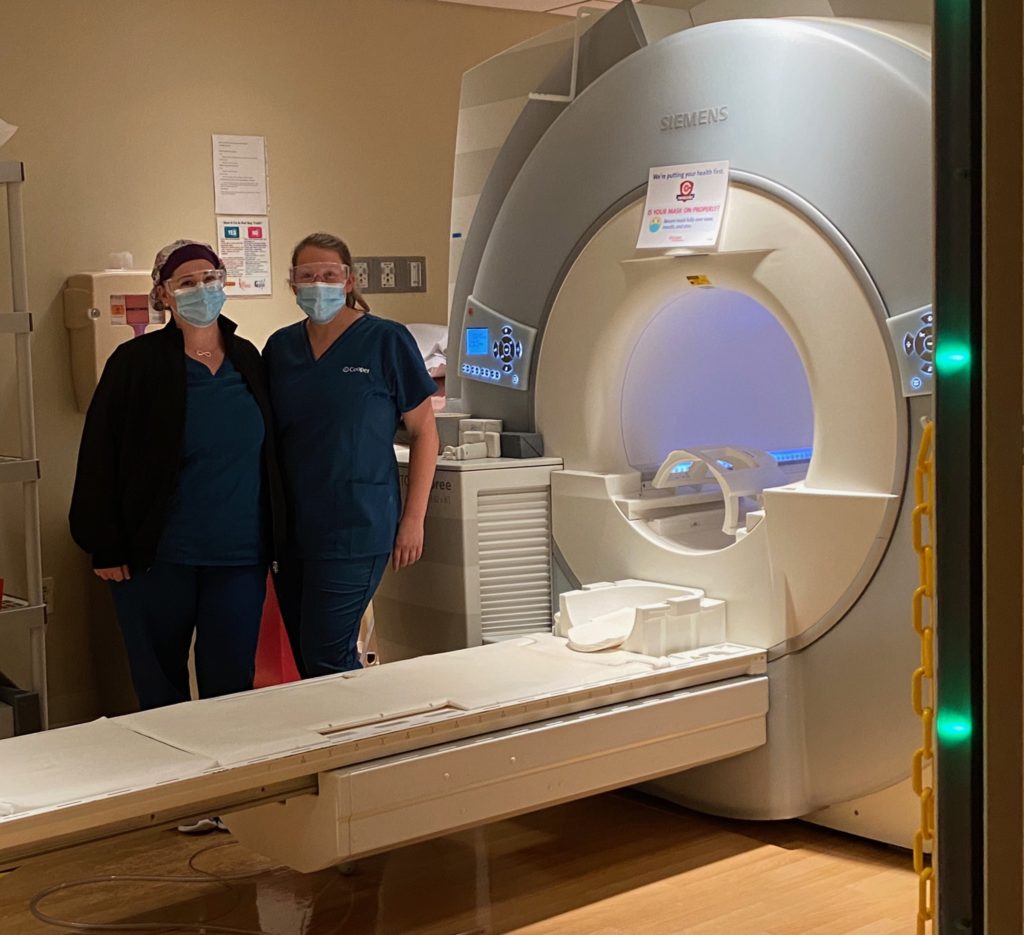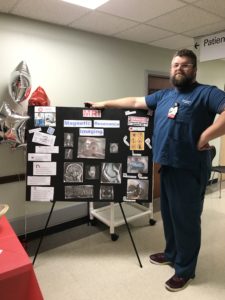 This week, July 27 through August 3, 2021, is MRI Safety Week. Thank you to Dawn Vitarelli, Cooper’s Manager of Cross-Sectional Imaging who, along with Cooper University Health Care’s MRI team, shared some amazing facts about MRI technology and the Cooper team responsible for keeping us healthy and safe around the MRI magnets.
This week, July 27 through August 3, 2021, is MRI Safety Week. Thank you to Dawn Vitarelli, Cooper’s Manager of Cross-Sectional Imaging who, along with Cooper University Health Care’s MRI team, shared some amazing facts about MRI technology and the Cooper team responsible for keeping us healthy and safe around the MRI magnets.
MRI Basics
MRI stands for magnetic resonance imaging, a three-dimensional imaging technique. There are a variety of diagnoses that can be made through MRI. If a doctor orders an MRI, they could be looking for anything from a ligament tear in a joint, a tear or strain in a muscle or tendon, a tumor, MS plaque in the brain or spinal cord, or herniated discs in the spine, for example.
Before you enter the MRI suite and scan room, you will be asked a series of questions about metal implants in your body – this is for your safety. If you answer yes to any of the screening questions, the MRI team will investigate the implant and determine if you can proceed with your MRI.
Our MRI Team at Cooper
 The 28-person MRI team at Cooper, which includes staff at our outpatient locations, has been working full time on the front lines during the COVID-19 pandemic. All of our technologists are board certified in magnetic resonance imaging and have strong knowledge regarding implant safety. We also have two board-certified magnetic resonance safety officers, a board-certified radiation officer, and a MRI medical director.
The 28-person MRI team at Cooper, which includes staff at our outpatient locations, has been working full time on the front lines during the COVID-19 pandemic. All of our technologists are board certified in magnetic resonance imaging and have strong knowledge regarding implant safety. We also have two board-certified magnetic resonance safety officers, a board-certified radiation officer, and a MRI medical director.
MD Anderson Cancer Center at Cooper recently added an MR-Linac machine, an innovative new technology in the treatment of cancer, to their Mount Laurel facility. It is one of only five MR-Linac machines in the country. You can read more about the MR-Linac here.
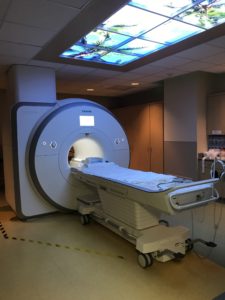 Cooper’s MRI team provides a safe environment and excellent patient care every day; however, processes shifted somewhat during COVID-19. There are new cleaning procedures to ensure that every patient who enters our MRI units feels confident that they are entering a clean environment. Due to the nature of the magnetic field, typical housekeeping equipment cannot enter our scan rooms, so our technologists now have to become creative with cleaning the inside of the magnets. Some crawl in and clean, while others use a duster.
Cooper’s MRI team provides a safe environment and excellent patient care every day; however, processes shifted somewhat during COVID-19. There are new cleaning procedures to ensure that every patient who enters our MRI units feels confident that they are entering a clean environment. Due to the nature of the magnetic field, typical housekeeping equipment cannot enter our scan rooms, so our technologists now have to become creative with cleaning the inside of the magnets. Some crawl in and clean, while others use a duster.
The safety of our hospital team members and patients is of the utmost importance and we make sure no one enters our suite without being screened or educated in MRI safety. Our team cannot do this task alone and we would like to thank everyone who assists in the screening process prior to the patient’s arrival to the MRI Department! Here are a few photos of our team and our scanners.
Keeping Patients Safe
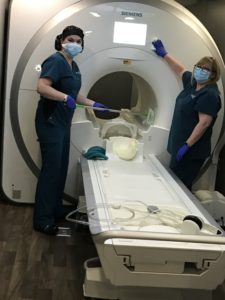 Did you know that an MRI’s magnetic field is 1,000 to 4,000 times greater than the Earth’s magnetic field? The MRI scanner is always “ON” even if no scanning is being performed. This means it is very important that we follow recommended rules to ensure patient and staff safety.
Did you know that an MRI’s magnetic field is 1,000 to 4,000 times greater than the Earth’s magnetic field? The MRI scanner is always “ON” even if no scanning is being performed. This means it is very important that we follow recommended rules to ensure patient and staff safety.
There are four zones in the MRI department:
- Zone 1: General public
- Zone 2: Pre-screened patients/visitors
- Zone 3: MRI control room/restricted access
- Zone 4: MRI scan room/restricted access
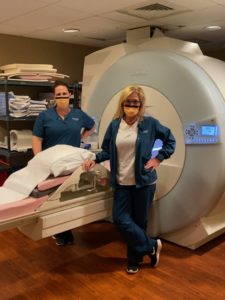 No one may enter Zone 3 or Zone 4 without permission from the MRI technologist. There are also a number of items of equipment that are restricted:
No one may enter Zone 3 or Zone 4 without permission from the MRI technologist. There are also a number of items of equipment that are restricted:
- Oxygen tanks
- Wheelchairs/stretchers
- Monitors/IV pumps
- Tools/ladders
- Cleaning equipment
- Some medically implanted devices
- Credit cards, cell phones, pagers
- Scissors, stethoscopes, pens
The MRI technologist will approve all items prior to going in the scan room.
Have you ever wondered why we ask so many questions? It’s for everyone’s safety!
For example:
- Upon placing an MRI order, pre-screening questions are answered by the provider and MRI scheduler.
- Then an MRI screening form must also be filled out by the patient and nursing staff, and will be reviewed by the MRI technologist before the MRI can be performed.
- If a patient has an implanted medical device, they cannot undergo an MRI procedure until the device is cleared by the technologist.
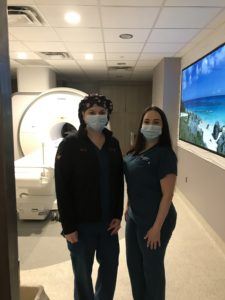 Everyday personal and hospital items can be deadly if introduced into the MRI environment carelessly. Patients can have adverse events such as malfunctioning internal devices or burns caused by medicine patches or non-MRI safe clothing such as metallic zippers/buttons, bras with metal clasps, certain underwear, and even popular athleisure wear. Hospital staff are also screened to ensure their safety in the department.
Everyday personal and hospital items can be deadly if introduced into the MRI environment carelessly. Patients can have adverse events such as malfunctioning internal devices or burns caused by medicine patches or non-MRI safe clothing such as metallic zippers/buttons, bras with metal clasps, certain underwear, and even popular athleisure wear. Hospital staff are also screened to ensure their safety in the department.
For your safety and the patient’s, please remember to think twice when filling out MRI screening forms and entering the MRI suite!
Quality Improvement
You can find the MRI Pre-Screening Checklist in Epic by going to Order History and finding the order for the MRI. Double click on the order and scroll to the section marked “Order Questions.” Providers ordering this study will be prompted to answer questions while placing the order.
All providers should check for accuracy and a completed checklist prior to the patient arriving to the department.
Do you have questions about our MRI team? The MRI Department is always willing to assist you with any safety-related questions! They can be reached at 856.342.2299.
